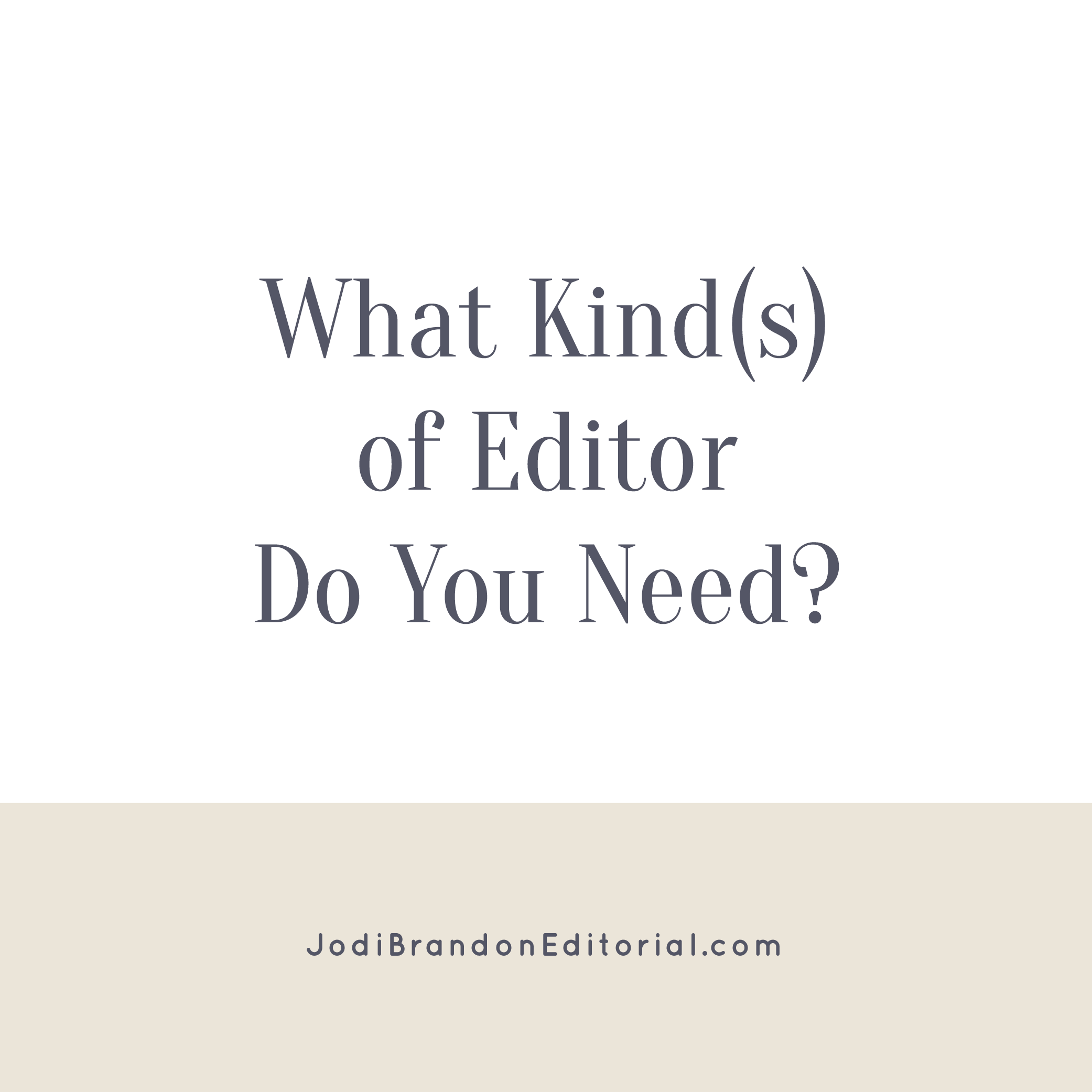Perhaps you’re familiar with the Avengers franchise rallying cry “Avengers assemble!” (Surely I’m not the only one who’s spent countless hours (and dollars) in movie theaters with teen nephews and nieces over the years?) The phrase often comes to mind with author-entrepreneurs who try to “go it alone” when writing and publishing their books. Writing can be a solitary act, but for business owners especially, getting a team in place is a smart way to go about publishing a book. As you build your book team, look for people who are experts at what they do. To keep the Avengers analogy going for a bit longer: If you wanted to find the strongest Avenger, you’d look to Hulk. If you wanted the fastest, Quicksilver. Similarly, look for the people who can complete the task(s) you need. Here are just a few service providers you should consider…
Read MoreWhen most people think about hiring a book editor, they’re thinking about a copy editor. A copy editor takes a micro view of your book manuscript and comes into the process once you have a finished manuscript. (A developmental editor, on the other hand, is interested in the bigger picture of your project and works with you during the writing process.)
Read MoreTrue or false? There is more than one kind of editor.
If you’ve been following me for any length of time, you know that’s a gimme. TRUE! Most people think of copy editors when they picture an editor. A copy editor looks at grammar and mechanics, ensures clarity in your manuscript, and looks for consistency in elements like voice and tense. A copy editor is looking at a micro view of your work and comes into the picture when you have a finished manuscript.
A developmental editor takes a macro view and looks at the bigger picture of your project. What are you trying to achieve with your text, and are you achieving it? A developmental editor works with you during the writing process. That’s our focus this week.
Read MoreBook editing can be a big investment, and you’ll be working closely with your book editor, so a good working relationship is critical. One way to ensure a comfortable and solid relationship is to ask questions before you hire someone to make sure you’re on the same page (see what I did there?). I’ve written about this topic before but am back with some new questions this time around.
Remember, too, that there are different types of book editors. These questions are specifically for copy editors.
Read MoreA lot of author-entrepreneurs revise as they write. They’re hesitant to embrace the idea of writing first, and revising second. Just as research and pre-writing are separate tasks from writing, so is revision. It’s not your fault if you think this way. After all, we’re not professional writers! Lots of people lump everything under the umbrella of “the writing process,” but that process actually contains five distinct stages.
Read MoreProofreading is not the same as copy editing, as far as the type of work being done as well as when the work is being done. Proofreading is done after a book has been typeset; copy editing is done before a book has been typeset.
Read MoreRepurposing is a buzzword in the online marketing and online business world these days. Create something once and use it over and over again. Makes sense, right? Bloggers often ask me if there’s any way to repurpose content from a blog into a book — and if so, how to do so. The short answer is YES! Chances are, you won’t have everything you need in blog post form, but I bet you’ll be surprised by how much you DO have once you take inventory. Here are some ideas to get the wheels turning.
Read MoreExactly when an editor fits into your publishing plan depends on a few factors, first and foremost what type of editor you want to hire. Remember there are three kinds of book editors: developmental editors, copy editors, and proofreaders. (Need a recap of what each of these editors do? Check out this post.) This blog doesn’t address proofreading, as that is generally a quicker process and it’s not as critical to book that service quite as far ahead as the other two.
Read MoreHave you ever made chili but didn’t add enough chili powder? It might have tasted okay, but it wasn’t, you know, chili. Creating a book is similar in that the ingredients are all necessary, and they must work together in order to achieve the final dish (book) that you want. A successful book is equal parts strong manuscript, professional editing and design, and appropriate marketing plan.
Read MoreEditing has been, for my entire career, my bread and butter. However, I received so many requests to enter the writing process earlier over the last few years that I added coaching to my services in addition to editing. When you hire a copy editor, your manuscript is written. You can still make big changes to its structure, but that’s often easier to do before or during writing. Or what if you want someone to help you flesh out the contents before you start writing? Or what if you need help defining your goals for writing a book to make sure that your writing supports said goal (or goals)? Or what if you need help knowing how to approach beta readers and obtain reviews? Maybe you need help with all of that, or maybe just one or two or those things. Enter a book writing coach.
Read MoreResource Roundup: Book Publishing Posts
Read More














